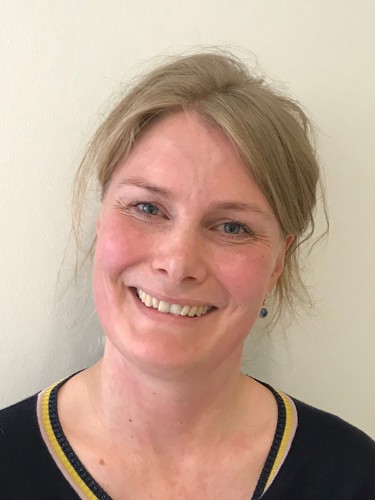Lene Nygaard
Department of Gynaecology and Obstetrics

The FAMKO project - Early intervention to support wellbeing of vulnerable women and their children
The beginning of a child’s life including the child’s physical and mental development has important influence on health status and social functioning later in life. During pregnancy, the well-being of the mother and her health behavior is important to give the unborn child the best conditions. However, not all women have the same opportunities as others to support the child physically, mentally or socially because of inequality in health or diverse challenges. There is a higher risk of being born with low birth weight or being born preterm if the mother has a short education or low income. Both situations may affect the child, also later in life. Children growing up in a family with a parent having a mental illness have a higher risk of becoming mentally ill themselves. In the worst case, children experiencing neglect, abuse, or being exposed to violence may experience long-term consequences.
Interventions to break the negative social heritage and support vulnerable women are needed to give children better lives. Also, research indicates that early interventions during pregnancy and the first years of childhood to disadvantaged families are better economical investments than interventions later in life.
The FAMKO project is a collaboration between Odense University Hospital, Odense Municipality and VIVE (the Danish Center for Social Science Research). The aim is to examine if an early and coordinated intervention during pregnancy and in the first years after birth can improve maternal mental health, well-being and reflective functioning, attachment between mother and child, and development of children in vulnerable families. Furthermore, the aim is to explore how participants and care providers experience the intervention.
320 pregnant women referred to antenatal care at the Familieambulatoriet at OUH and living in Odense Municipality are offered participation in the FAMKO project. Pregnant women and their (un)born child are eligible if they have one or more of the following characteristics: Severe social problems, psychological challenges or severe psychiatric disease, previous or current use of addictive drugs or use of alcohol above the recommended limits by the mother or father, or professional concern about the mother/child attachment, or the parents’ ability to take care of the child.
The study consists of 2 parts. Part 1 is a randomized controlled trial where the participants will be allocated to either an intervention group or a control group having care as usual. Participants at the intervention group will be offered 1) a support person 37 hours during pregnancy and 10 hours each year until school age, and 2) a mentalization-based course to support the mother-child attachment. Part 2 consists of two qualitative studies focusing on the women’s experience of the intervention and the experiences of care providers involved in the intervention.
The participants will be asked to fulfill a questionnaire two times during pregnancy and when the child is 3 and 12 month old. During pregnancy questions are asked about socio-demographic information. Furthermore, we use standardized questionnaires about Adverse Childhood Experience, posttraumatic stress disorder, adult attachment, breast feeding expectations and prenatal parental reflective functioning. Maternal mental well-being and depression will be measured during pregnancy, 3 and 12 months after birth. Furthermore, questions about being a mother, parenting stress and parental reflective functioning will be asked when the child is 12 month old.
For both women and children in the intervention- and control group, we will retrieve information from hospital registers about the pregnancy and birth. The hypothesis is that women in the intervention group have less complications during pregnancy and birth, less emergency visits at the hospital, and better compliance to the standard health visits. To explore how participants and care providers experience the intervention six focus group interviews will be carried out. Furthermore, a case study where six participants are followed during their meetings with care providers will be conducted.
Findings from this study will generate important information about pregnant women and children from the most vulnerable groups in Denmark, including their characteristics and challenges. Furthermore, findings about the effect of the intervention are important when future initiatives to reduce inequality in health are planned.
